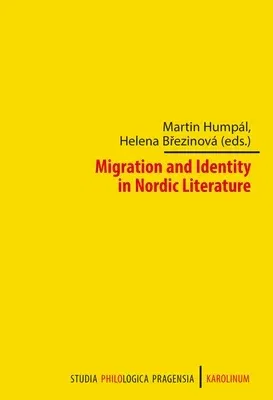Migration and Identity in Nordic LiteraturePaperback, 4 November 2022

Qty
1
Turbo
Ships in 2 - 3 days
In Stock
Free Delivery
Cash on Delivery
15 Days
Free Returns
Secure Checkout

Part of Series
Studia Philologica Pragensia
Print Length
264 pages
Language
English
Publisher
Karolinum Press, Charles University
Date Published
4 Nov 2022
ISBN-10
8024647311
ISBN-13
9788024647319
Description
Product Details
Book Format:
Paperback
Country of Origin:
US
Date Published:
4 November 2022
Dimensions:
22.86 x
15.49 x
1.02 cm
Genre:
Scandinavian
ISBN-10:
8024647311
ISBN-13:
9788024647319
Language:
English
Pages:
264
Publisher:
Series:
Weight:
272.16 gm